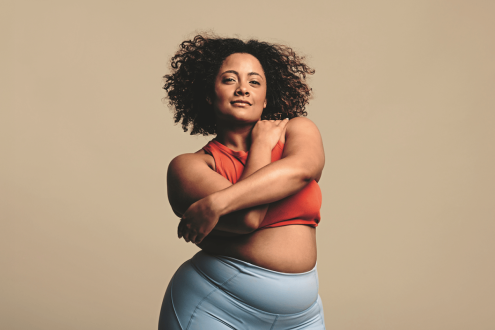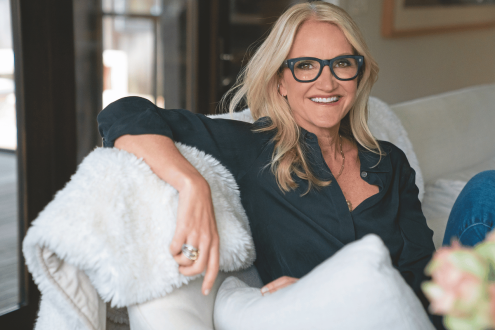Keep it Happy – Lessons from our former selves…
Deborah Stephenson, soon to be Ollie Coach, explains that our drive to understand and discover is an instinctive biological and psychological force. Learning is arguably the most important thing we do as today we know more than we knew yesterday, and we will know more tomorrow than we do today.

“The beautiful thing about learning is that nobody can take it away from you.” – B.B. King
Recently we cleared out our garage and I found some forgotten boxes full of stuff I’d kept from when I was young. You know the kind of thing… old birthday cards, tickets, postcards, notes and letters, dairies, a badge collection and cassettes (yes I am that old) of Top 40 compilations. There were also dozens of exercise books and folders of work from kindergarten to postgraduate.
I am struck by the sheer volume of the school work… page upon page of (mostly) neat blue ink. Thousands and thousands of words on numerous topics from the lifecycle of a frog to Queen Victoria; Diamond mining in Johannesburg to quadratic equations, essays on Shakespeare, French verb tables, and instructions on how to make raspberry buns.… graphs, diagrams and arithmetic.
I showed my children who sniggered at scrawled red pen comments like “…pull your socks up!” and “…your work would be better if you gave it your full attention!”, but they were also interested and slightly surprised to see I’d done some of the things they are doing in secondary school now.
We looked at stories I’d written in thick grey primary school pencil with titles like “The orange ball”, “Miss Mouse’s surprise”, and our personal favourite, “The Haunted Sandwich” (honestly true). We laughed at a piece I wrote about myself (age 7) which stated boldly “I am stubborn and very irritable at times,” (no comment!), and that I had written “my favourite subject is science” when I distinctly remember not liking it at all.
There are also notes on torn pages hurriedly passed in class, scribbled names in curly hearts, and many many doodles! The children were intrigued at this snapshot of a part of my life they would never know and the evidence of me before they knew me… me as a child, as they are now.
Of course there is so much more to all of our lives than school work and old souvenirs, but for me these boxes hold real memories and feelings and are a record of my progress from learning to write my name to complex university dissertations.
You may have similar old boxes of things from your past that remind you of your life journey, and I wonder how they make you feel about how far you have progressed – because you have.
It’s in our nature to seek and learn because progress is fundamentally important to humans in facing our biggest challenge – to stay safe and alive. The ultimate purpose of progression is to increase the chance of survival. As our ancestors met each survival challenge, new challenges arose, and in tackling those, humans evolved and developed.
Some developments brought positive progression, others turned out to be downright destructive, and the way we overcome challenges has undergone a phenomenal change over the years, but one thing is for sure, no sooner does a new threat arise, than we begin work on ways to overcome it – as we have experienced so recently with the global race to find a Covid vaccine.
To progress we have to learn, and learning is arguably the most important thing we do. It’s almost impossible not to learn because today we know more than we knew yesterday, and we will know more tomorrow than we do today, but our drive to understand and discover is an instinctive biological and psychological force. We witness this most clearly perhaps in the first stages of life where the rate of progress from vulnerable, dependent new-born, to crawling, walking, feeding, talking child unfolds with incredible speed.
The process of learning fires neurons in our brain forming connections and “wiring” them together. The more we practice something, the stronger the connections become, our brain physically changes and the task becomes easier. If we stop practicing it, the connections weaken and the pathways between the neurons begin to fade. When we don’t learn new things or have new experiences the brain slows down which affects our mental and physical health.
Learning also has a positive impact on our confidence and self esteem, increasing feelings of pride and deep satisfaction, and it reduces stress. Research also shows that it improves memory and may also delay the onset of dementia.
Learning is so good for us, so get out of your comfort zone… I know it’s… well… comfortable, but challenging yourself brings greater rewards. Learning something new produces a rush of the feel good hormone dopamine which also happens when we achieve or master a new skill. We feel great and we crave that feeling again which encourages us on to progress further.
Don’t think that learning has to be about books or risk or hard work, it really doesn’t… it’s just about exploring something new and trying something different. I’m a firm believer that you can definitely teach an old dog new tricks. It’s never too late.
I wonder where I’ll be and what I’ll be doing the next time I open my boxes. Having put away similar things for my own children, I also wonder what they’ll make of their work in years to come and whether they will giggle at their three year old attempt at a picture of Mummy (spindly arms, wobbly head, too-close eyes, and floating hair!) I hope it gives them a sense of wonder at how far they have progressed.
Personally I feel I made rather good progress since the early days of “The Haunted Sandwich” (which actually turned out to be a rather boring and unfinished tale). I became a journalist and of course my newest venture has been writing these blogs for the last year. There are now forty of them (which you can find on the Psychologies Lifelabs website in the Ollie and His Superpowers section). I have learnt so much from this new experience and hopefully you have enjoyed them too, so thank you for reading.
And there’s something else too…
I heard a comment recently that “What we are, is what we have learnt in our lives.” This is broadly true… we are shaped by the experiences we have but we are also affected by what other people say about us, especially when we are young. This can have quite an influence and can lead us to believing things about ourselves that hold us back.
I wonder if you still live with a particular perception of yourself from your early years that actually isn’t true… many of us do. It’s not a lie as such, because it seemed true to your seven, ten or fifteen year old self, but actually you know it isn’t the case anymore.
Perhaps you believe that you’re rubbish at art or don’t understand maths because of a comment made about you twenty years ago? Maybe you think you can’t dance because someone said you had two left feet? Perhaps there was something you loved but gave up because you were overlooked or told you weren’t good enough.
You probably felt embarrassed or ashamed, and that the person knew better, and you’ve lived on thinking you can’t draw, dance, bake or play an instrument, but I wonder if it’s time to let that go now. Time has passed, you are not the person you were then. You have learnt, changed, moved on and made progress.
Delve into your dusty boxes. What would you tell your younger self and how can you use that to challenge and change your perception of yourself to make progress today?
Whatever you end up doing, do something and enjoy the process of making progress.
Deborah Stephenson, soon-to-be Ollie Coach
I am an Ollie School trainee and a Director at an Independent Prep School for boys. I am a trained journalist and worked in BBC Local Radio for more than twenty years as a reporter, bulletin reader, news editor and programme maker. It was a great job, but I wanted to do something to support my own children’s wellbeing with a view to taking that on to support others and, in pursuit of a better work life balance, I resigned as the Assistant Editor of BBC Essex last year. Inspired by the Ollie School concept I was excited to be accepted for the training course and it has been a fascinating and enlightening and journey so far.
To get in contact with Deborah, email info@ollieandhissuperpowers.com
To find out more about Ollie and his Super Powers and how to become an Ollie Coach go to https://www.ollieandhissuperpowers.com/pages/about-us
Caroline Chipper
Director
Co founder of Subconquest Ltd, that trades as Ollie and his Super Powers. My many years of commercial experience is being put to good use managing the business side of Ollie, including working with our Ollie Coaches, and managing our contracts. In everything we do its about making a difference to those we work with. To find out more go to https://www.ollieandhissuperpowers.com/pages/about-us



